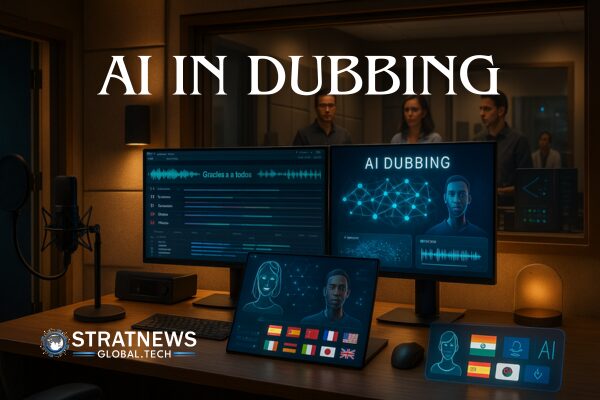German Dubbing Industry Warns Against Sacrificing Quality for Cost
The German dubbing industry is sounding the alarm over artificial intelligence (AI) and its impact on quality and employment. Voice actors and studio leaders are urging clear regulations to prevent misuse of AI in film and television production.
Eberhard Weckerle, managing director of a dubbing studio in Gruenwald near Munich, warned that using AI to save money could come at the cost of emotional depth. “Sound is something that works on an absolutely emotional level,” Weckerle said. “That’s why I really don’t think AI is suitable for this at the moment.”
His studio has worked on the German version of Conclave and is currently dubbing new projects by directors Guy Ritchie and Luc Besson, including a Dracula film starring Christoph Waltz.
While Weckerle supports the use of AI in supporting roles like translation, he remains firm that voice acting requires human emotion.
Dubbing Holds Strong Cultural Significance
Countries like Germany, Italy, and France maintain a strong tradition of dubbing, where many viewers prefer it to subtitles. Voice actors in these countries often enjoy loyal fan followings and take part in panels and promotional events.
Streaming platforms such as Netflix have boosted demand, driving market growth. According to Business Research Insights, the global dubbing market is expected to reach $4.3 billion this year and grow to $7.6 billion by 2033.
Despite this growth, industry professionals say AI’s speed and cost advantages cannot replace the depth and nuance human voice actors bring to performances.
Industry Groups Demand Legal Protections
Cedric Cavatore of the Association of German Dubbing Artists (VDS) emphasised the cultural value of dubbing and urged tighter regulation. He criticised big tech firms for using copyrighted material to train AI models. “The big tech companies are staking their claims everywhere,” he said.
While he acknowledged the European Union’s AI Act as a step forward, Cavatore called for stronger safeguards, including clear rules, fair pay, and protection of creative content.
VDS works with the United Voice Artists (UVA), a global alliance of more than 20,000 voice actors. The groups support each other in negotiations and share resources on AI-related challenges.
A TikTok video featuring 12 prominent German dubbing actors added momentum to the movement. It has reached 8.8 million views since March and helped gather nearly 74,000 signatures for a petition by VDS.
Startups See AI as a Useful Tool
Some companies, however, view AI as a helpful addition to the industry. Stefan Sporn, CEO of Audio Innovation Lab (AIL), admitted to concerns but highlighted the benefits. AIL recently used AI to translate the Cannes Film Festival film Black Dog from Chinese to German, adjusting the original voices.
“Humans will always be needed to provide emotion, write scripts, and work with language,” said Sporn. “Just not to the same extent as in traditional production.”
Another firm, Flawless AI, says it uses AI ethically. The company works with local voice actors and uses technology to sync lip movements across languages. Co-CEO Scott Mann sees AI as a game-changer when used responsibly.
“When AI is used in the right way, it changes how we can make films,” Mann explained.
with inputs from Reuters


